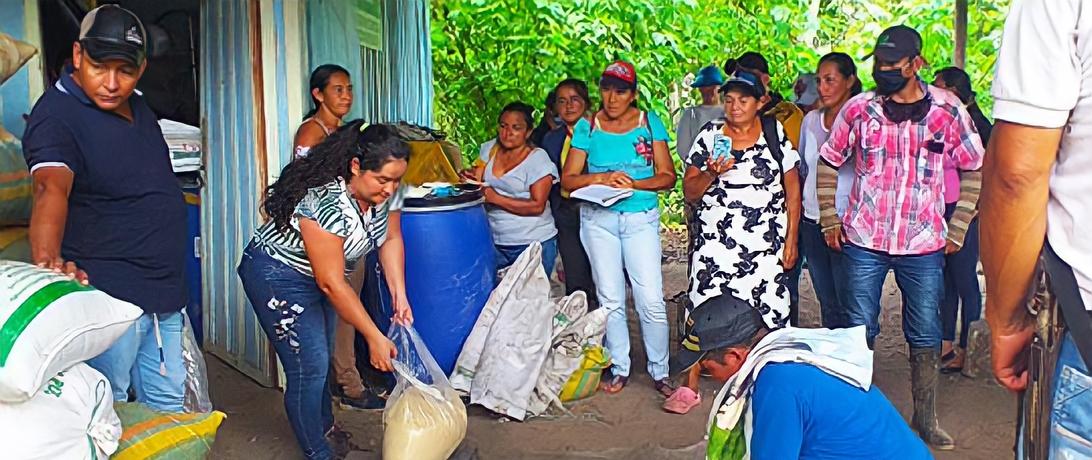
Ex-combatant cooperatives will provide animal feed to ex-coca grower families and will buy their products at fair prices.
In the Rural Alternative School (ERA) of San José del Guaviare, the ex-combatant cooperatives of COOJAPAL and COAMACOL signed a marketing agreement with families that are part of the National Comprehensive Program for the Substitution of Illicit Crops (PNIS). Thanks to this partnership, the ex-coca grower families will buy organic animal feed produced by the ERA at a discount and sell their products to the community at a fair price.
PASO Colombia has been working with families participating in the PNIS program through the Contingency Plan to Support Ex-Coca Grower Families. The Contingency Plan builds on the experience developed in the ERA of San José del Guaviare. The ERA has the machinery, knowledge, and experience for the production of organic feed for animals, improving the economic sustainability of their animal husbandry projects.
COOJAPAL member Juan Antonio Castro says, "The program has been very important in helping us find a way to feed our fish, pigs and poultry. Now we want to replicate it with the communities, because the food security of the region depends on it.”
Socorro Pardo, a participant of the Contingency Plan and the subject of Episode 4 of the PASO Colombia web series Women Seeding Peace, says, “I think this is very good, because I used to buy feed for my animals for US$22, plus US$3 for transport. With this agreement now in place it will cost only US$17. In addition, when the storage center is ready, they will buy what we produce, such as yucca, plantain, fish, and chickens and also raw material to produce more organic feed for animals. Thus, I’ll try harder to seed and care for my animals because I’m on the safe side. I’m going to take better care of my cachama fish that were starving when I didn’t have money to buy them food.”
"The problem that PNIS families were having is that they received and took on animal husbandry projects, but then the animals grew up and couldn’t be sold, so the families could only use them as a food source or give them away. Our goal is to help enable people who substitute their illicit crops to strengthen the local market, with them selling us what they produce while they buy our product at a discount for the community," explains Noe Gutierrez, legal representative of the COAMACOL. “With this collective production effort, the use and sale of the organic feed for animals is guaranteed and families who have substituted illegal crops now have a viable legal alternative for generating income.”
Gutierrez encourages this partnership, explaining, "The idea is to produce and commercialize in Guaviare, so we have access to first-rate products at fair prices.”
The organic feed for animals produced by the cooperatives of former combatants costs 40% less than the industrial ones and is made using local plant material, including agricultural products discarded at harvest. It also avoids the costly transportation fees required to bring products in from other departments. In addition, the organic feed has a positive impact on animal nutrition and therefore on the health and quality of the animals.
This agreement strengthens the value chains of agricultural projects in Guaviare and promotes joint work between ex-combatants and rural farmers to contribute to the transformation of the region.
Article Details
Published
Topic
Program
Content Type
News